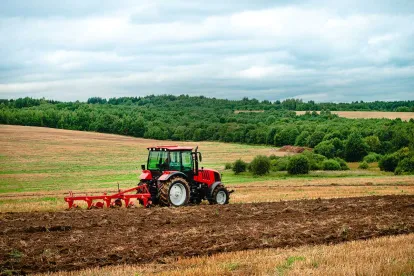An idealized vision of the family farm holds a special place in the psyche of the American people. But what exactly constitutes a "family farm"? That is one of the definitional challenges that the Department of Financial Protection and Innovation faces in adopting regulations implementing the California Consumer Financial Protection Law (CCFPL). Section 90009(e) of the Financial Code authorizes the DFPI to define unfair, deceptive, and abusive acts and practices in connection with the offering or provision of commercial financing or other financial products and services to small businesses, nonprofits, and family farms.
As reported in this post, the DFPI has recently proposed adopting regulations implementing the CCFPL. Among other things, the DFPI is proposing to define "family farm" by borrowing the definition from federal regulations concerning the making and insuring of loans to family farms by the Farm Service Agency of the U.S. Department of Agriculture. 7 C.F.R. § 761.2(b).
(e) “Family farm” means a business operation:
(1) That produces agricultural commodities for sale in sufficient quantities so that it is recognized as a farm rather than a rural residence.
(2) In which a substantial amount of physical operating labor is provided by, the majority of day-to-day, operating decisions are made by, and all strategic management decisions are made by:
(A) the consumer, with input and assistance allowed from relatives of the consumer, in the case of an individual consumer seeking credit, or
(B) the members responsible for operating the farm, in the case of an entity seeking credit.
(3) That may use full-time hired labor in amounts only to supplement family labor.
(4) That may use reasonable amounts of temporary labor for seasonal-peak workload periods or intermittently for labor-intensive activities.
The DFPI's proposed definition, however, uses terms that are defined in the federal regulation but not in the proposed definition (e.g., "agricultural commodity" and "farm"). Several of the elements of the proposed definition are also hopelessly vague. For example, what constitutes "substantial amount of physical operating labor" or "reasonable amounts of temporary labor"? It is also unclear what it means to be "recognized as a farm rather than a rural residence". After all, the two categories - farm and rural residence - are not mutually exclusive.
It turns out that the California Constitution defines "family farm" in Article XIII A, Section 2(e)(2):
“Family farm” means any real property which is under cultivation or which is being used for pasture or grazing, or that is used to produce any agricultural commodity, as that term is defined in Section 51201 of the Government Code as that section read on January 1, 2020.
I believe that this definition is generally superior to the DFPI's proposed definition if you add the text of Government Code Section 51201 in effect on January 1, 2020:
“Family farm” means any real property which is under cultivation or which is being used for pasture or grazing, or that is used to produce any and all plant and animal products produced in this state for commercial purposes.
This definition is much less verbose. It also makes it clear that a family farm may be ranch. It is missing one element - the concept of family. Therefore, I would add the following to the definition:
“Family farm” means any real property owned or controlled by a natural person or natural persons related by blood, marriage or adoption which is under cultivation or which is being used for pasture or grazing, or that is used to produce any and all plant and animal products produced in this state for commercial purposes.



 />i
/>i

